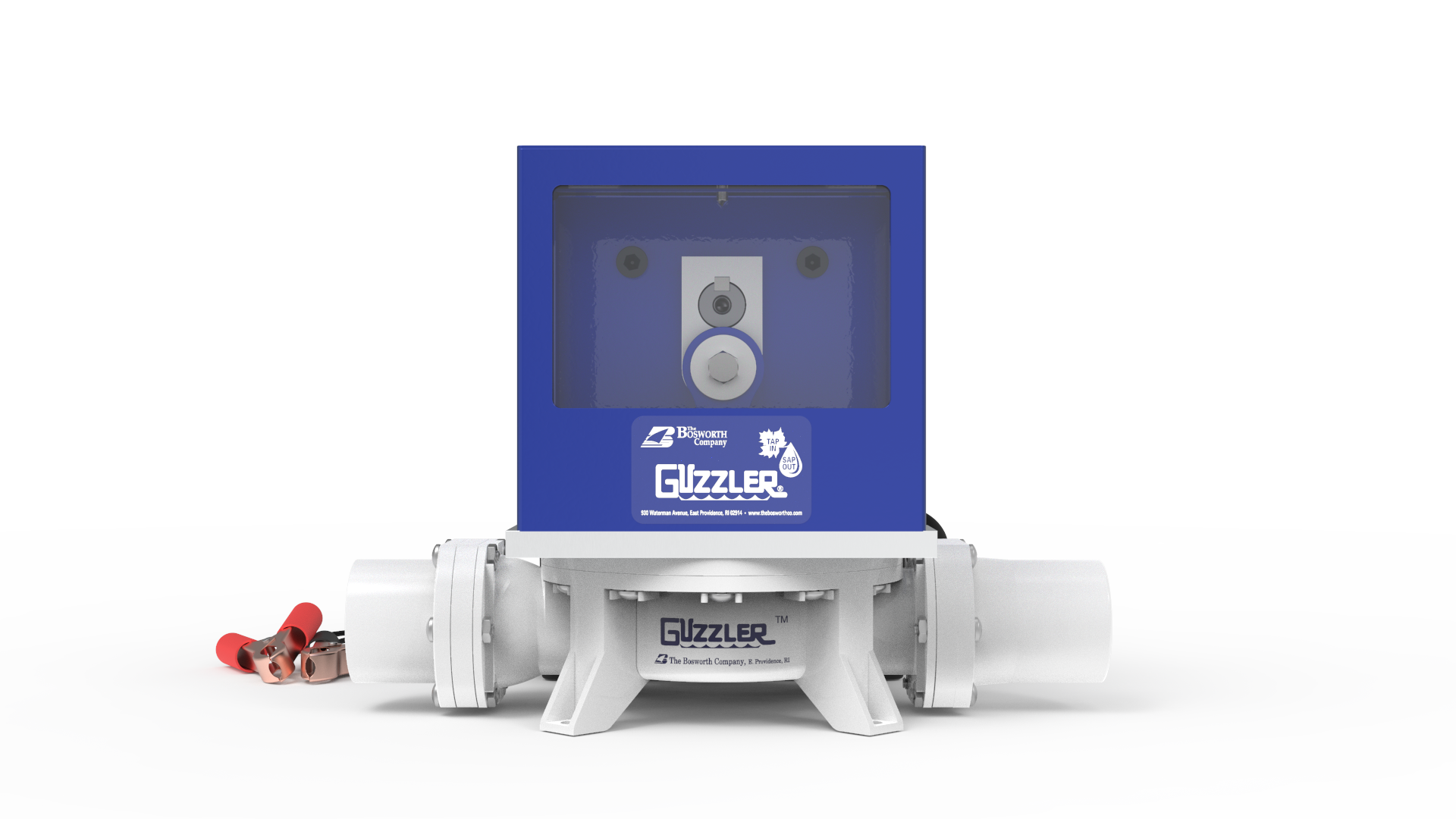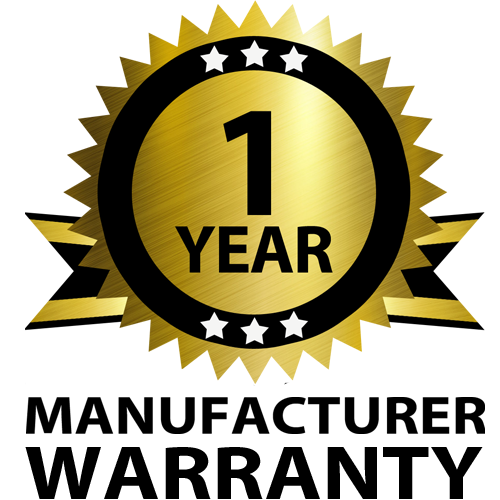

*Image is a representation of this item. Actual item may vary.*
Hover over image to zoom
Bosworth GE-0504N 24 VDC Motorized Guzzler 504N Pump
8.3 GPM, Accommodates 1-1/4 in. to 2 in. Hose
Ships From Manufacturer
Select Model & Quantity:
| Model # | Description | Price | Qty |
|---|---|---|---|
| GE0504N071587171TK | 1-1/4 in. Inlet/Outlet, Female (Tapped) End, Umbrella Valves, 24V DC | $1,666.73 |
Bosworth - GE-0504N - 24 VDC Motorized Guzzler 504N Pump
24 VDC Motorized Guzzler "504N" Pump. . FDA-approved materials. Suitable for food processing, pharmaceutical or biomedical applications.
Features- FDA-approved materials for components in contact with fluid
- Brushless DC motor featuring slim compact design
- 8.3 gpm
- Accommodates 1-1/4" - 2" hose
- Ideal for pharmaceutical, food processing or biomedical applications
- Efficient motor can run for up to 50 hours on 2-12VDC 60-amp hour batteries
- New "See-Thru" motor guard for ease of diaphragm inspection
Bosworth GE-0504N Series Motorized Pump Models
| Model # | Inlet/Outlet | End Type | Diaphragm | Valves | Motor | >
|---|---|---|---|---|---|
| G-58401 | 1-1/4 in. | Female (Tapped) End | Buna | Umbrella | 24VDC - 60 RPM |
Can a Guzzler be used to pump waste water from a boat holding tank?
Pumping waste from boat holding tanks (or any other sanitation tanks) is a perfect job for a Guzzler. Guzzlers are in widespread use for pumping in sanitation applications on boats, trains, lavatory service carts and portable sanitation systems.
Can the 400 pump be used to pump gasoline?
Although the pump materials are non-reactive to gasoline and many fuels, we do not recommend that our pumps be used for transferring fuels of any kind.
How do I use a check valve to increase pump lift?
A check valve makes it easier for you to use the Guzzler pump to prime for pump lifts in excess of 12 feet. If you had a see-through inlet line, as you begin to pump you would see that the Guzzler draws fluid up the inlet line toward the pump as you execute the suction stroke of the pump. However, as you perform the exhaust stroke, the fluid would tend to fall backward a bit, and then be drawn up further with the next suction stroke. As you are priming at greater distances, this fallback effect on the water column becomes more pronounced. To offset it, install a check valve at the bottom of the inlet line. Also called ?foot valves? because they are typically placed at the foot of in the inlet line, check valves serve as a ?one-way?valve to permit water to be drawn up to the pump, but to help prevent it from flowing backward either when the pump is performing its exhaust stroke or when it is not operating. In this way, the check valve helps to maintain the height of the water column in the inlet line, thus maintaining the pump?s ?prime?. We recommend that you use a check anytime the pump lift (i.e., the vertical distance from the fluid source to the inlet of the pump) exceeds 12 feet.
Is it better to mount the pump horizontally or vertically?
The horizontal-handle pumps and the vertical-handle pumps are completely equivalent in functionality. Which you choose for your installation is entirely a matter of which style of pumping action (?back-and-forth? for the vertical handle and ?up-and-down? for the horizontal handle) is convenient for your use. Additionally, if you equip your pump with duckbill valves, you can mount your pump vertically, which changes the sense of handle action as well.
What should I check if the pump stops working?
If your pump stops working, the first thing to check is whether there is a hole or tear in the diaphragm. If so, the diaphragm needs replacement. If there is no problem with the diaphragm, then check to see if the pump is able to create a vacuum to draw fluid up to it. Disconnect the inlet line and, with your hand directly covering the inlet flange, pull the handle up (or turn the motor on). You should feel a suction on your hand. If not, then remove the outlet flange (opposite the inlet), to inspect that the valve is operating properly and not obstructed by any material. Depending on the type of valve, material in the fluid that enters the pump may become lodged in the valve and prevent it from closing to make a tight seal against the flange. If this happens, then the pump will be unable to create a suction on the inlet side. After checking the inlet suction, disconnect the outlet hose and, with your hand covering the outlet flange, press down on the handle (or turn the motor on). You should feel exhaust pressure against your hand. If not, then make a similar inspection of the inlet valve.
If there is no material lodged in either valve, the valves may simply be old and no longer seating properly. If your pump is a ?400? series pump equipped with flapper valves, a simple trick is to turn each valve around. Sometimes flapper valves can warp as they age and simply flipping the valve to change the side that seals against the flange allows the valve to operate properly again. (Note that you cannot do this trick with ?500? flapper valves since they have a specific side that needs to face against the sealing flange.) If the pump is operating properly when disconnected from your hoses (i.e., if you feel the appropriate suction and exhaust pressure), then a next step is to check your inlet and outlet lines for any obstruction.
What is the lowest temperature at which the pump will continue to work?
The lowest temperature is generally the freezing point of the liquid you are pumping. Remember that adding salt to water depresses its freezing point, allowing you to pump at temperatures below 32?F.
Can a Guzzler run dry?
Yes. Guzzler pumps can pump air as well as fluids, so a Guzzler pump can continue to operate when there is no fluid to pump. This is why the pump can be used to establish and maintain a vacuum.
How long do Guzzler diaphragms last?
This is a difficult question to answer precisely because operating conditions can significantly impact diaphragm lifetime, and operating conditions vary drastically from installation to installation. When we test diaphragms at the factory, we achieve lifetimes on the order of 1 million cycles. These tests are conducted for the pump pulling 22 in Hg vacuum and transferring water. Pulling a higher vacuum will result in greater mechanical forces on the diaphragm, which will tend to shorten diaphragm lifetime. Pumping ice chunks through a Guzzler can abrasively score the surface of a diaphragm, thus shortening diaphragm lifetime. Users who operate their pumps in a way that not only creates a vacuum but also requires the pump to generate head pressure to push the sap to a collection point above the pump probably see the shortest diaphragm lifetimes, as the additional head pressure causes the diaphragm to flex in both directions during a pumping cycle. Finally, if the pump is operated 24/7, it will reach a million cycles after only 10 days.
Anecdotally, users report the full range of experiences, from those who say that their diaphragms are lasting not much more than a week, to those who report that they change them once in a season. We recommend always having a spare diaphragm available, and all our motorized pumps ship with a spare diaphragm.
The Bosworth Company Warranty
The Bosworth Company ("Company") warrants the GUZZLER?/SEA-LECT? products to be free from defects in workmanship and material due to original manufacture. Product Warranty Card must be mailed or completed online within ten days (10) of purchase or warranty is void. Product warranty is limited to repairing or replacing any device or part which is returned to the factory within the warranty period of the product.
The Bosworth Company liability under this warranty extends for a period of one year (1) from the date on which the Company receives the completed warranty card. A four year period of Additional Warranty is available for GUZZLER? hand pumps, foot pumps and SEA-LECT? Y-valves. The Additional Warranty commences at the end of the standard one (1) year warranty period.
Products that have been disassembled or modified are excluded from this warranty. This warranty does not apply to those product elastomer components (i.e., pump diaphragms and valves) that fail beyond their expected lifetime, such expected lifetime as measured by the Company in its standard product testing transferring water from/to atmospheric pressure. This warranty does not apply where the product defect is attributable to material supplied by a third party; in such case, the only remedy available to the buyer of the product will be against the third party. The Bosworth Company is not liable for any representation or warranty made by a distributor or other person acting on behalf of the Company unless confirmed in writing by The Bosworth Company.
The Bosworth Company does not assume liability for consequential damages of any kind or for damage caused in whole or part by misuse, improper handling, installation, or operation. Nor shall the liability of the Company exceed the repair or replacement of such equipment or part thereof as may be proved defective.
The Bosworth Company makes no express warranty except as set forth herein and assumes no liability for any implied warranties extending beyond.
No reviews yet!
Be the first to add a review.
*Reviews are subject to approval